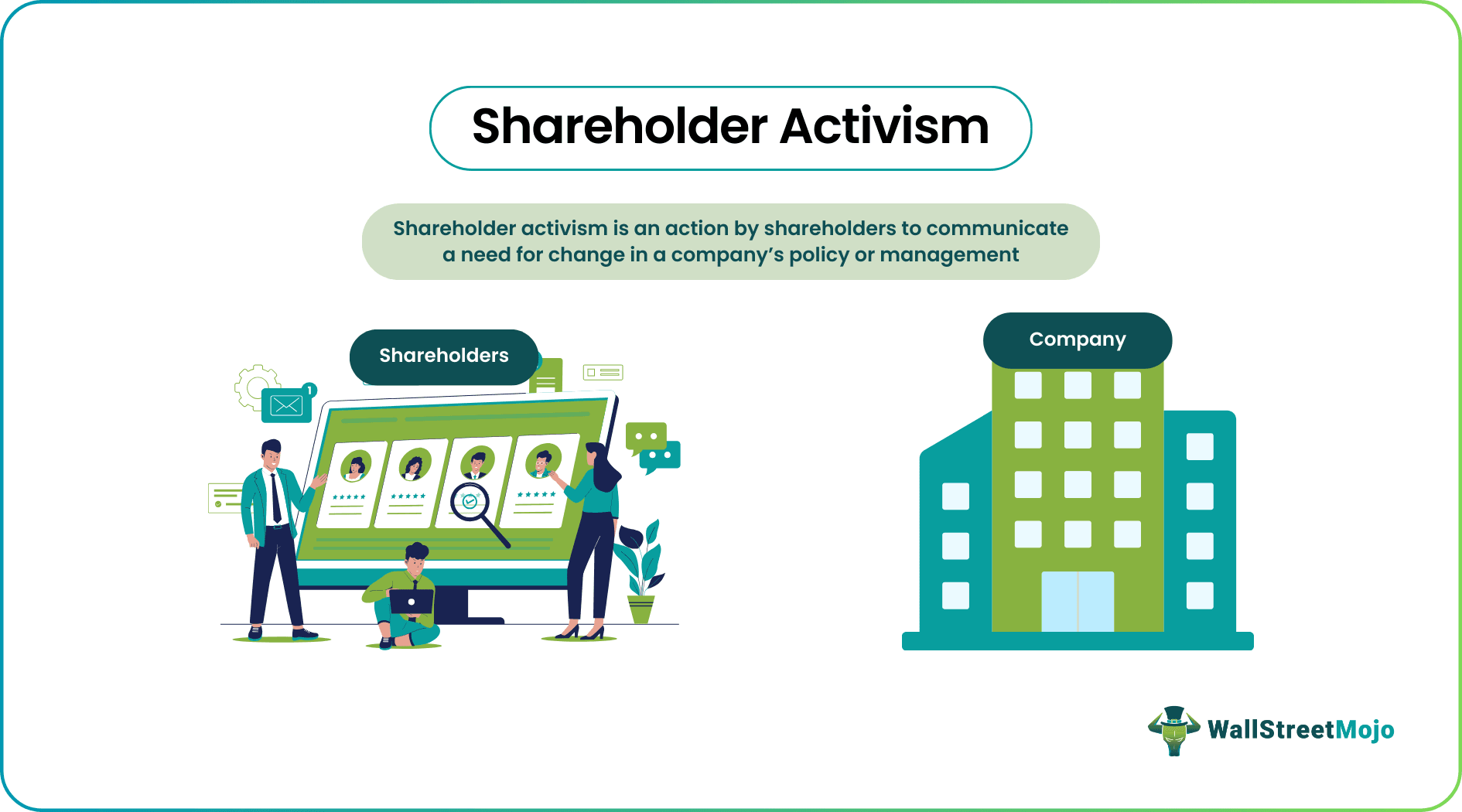Table Of Contents
Key Takeaways
- Shareholder activism is an attempt by the shareholders to influence the firm’s commercial activities through their ownership rights.
- It is practiced for two major purposes, i.e., correcting the management’s mistake and creating major modifications in its policies.
- The approaches to shareholder activism include proxy battles, lawsuits, shareholder resolution, settlement with the administration, and publicity campaigns.
- Shareholder activism seeks to highlight the problems of shareholders and upgrade the company’s policies for betterment.
Examples
Example #1
As per a recent Forbes report, ExxonMobil’s activist shareholder Engine No. 1, a hedge fund, has won two seats on the oil and gas giant’s 12-member board.
Amid growing global concerns regarding climate change, Engine has been pushing Exxon to transition to renewables and low-carbon energy. As a part of its strategy, it suggested four nominees for the Exxon board, of which two have been approved.
With only a minor stake of 0.02% in Exxon, Engine could achieve this feat by gaining the support of Exxon’s other substantial stakeholders like the California State Teachers' Retirement System, U.S. pension fund, and BlackRock.
This change in the board is likely to force Exxon to transform its business by shifting to cleaner energy. Also, it would encourage other activist investors to engage in shareholder activism to take on big oil companies to address the cause of climate change.
Example #2
Here is a snippet from a Wall Street Journal report.
With 2.5% shares (nearly $325 million) in Hasbro Inc., Alta Fox Capital Management LLC plans to wage a proxy battle to make desired changes to the toymaker firm. Alta Fox intends to add five directors to Hasbro’s board and suggests a spin-off of Hasbro’s unit housing games like Dungeons & Dragons. .
Stockholders will vote at Hasbro’s annual meeting to consider the future of director candidates. Alta Fox believes that the step can double Hasbro's market valuation. It's currently valued at $13 billion, possessing brands like Monopoly and Nerf. The toy manufacturer firm has welcomed the move and is quite ecstatic to have new directors on board.

